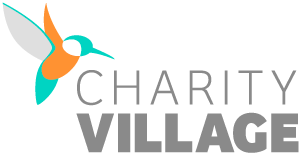French translation available, click here.
Your career will span approximately 10,000 days, and you will probably earn between 1.5 and 4 million dollars over that period. In today’s world, it is highly likely that your career will move through several, quite distinct, phases. To make the necessary adaptations, you need to know your skills and interests, and how to relate them to the constantly changing array of career alternatives.
The world of work is also changing at an accelerated rate. New job categories are invented every day, and others disappear. How do you wish to feel about your job? Are you excited and stimulated about going to work each day, or do you feel stalled, boxed in, frustrated with no real job satisfaction? It’s logical that, if you do what you like to do, and if you enjoy the tasks involved, then you will be more energized and perform better. Naturally, a top performer is more valuable to an organization, so your financial rewards and job security should increase accordingly. Also, until you know what you’re offering, and where to offer it, an organized job search is impossible.
The first step is to take a good hard look at yourself, where you are, what’s important to you, and where you’re going in your career. The following Career Assessment questionnaire will help with that. These are important questions that will provide focus and a basis for evaluating alternatives. This assessment will also help you prepare to clearly communicate your skills, interests, strengths and career goals to others, in print and in interviews. First, though, it will be helpful if you have a clear understanding of some of the terminology, so here are a few definitions:
- Aptitude: An individual’s capacity for learning a type of activity. You might have a mathematical aptitude, a mechanical aptitude, or a musical aptitude, and so on.
- Strength: A positive personal quality. Strengths include persistence, creativity, integrity, optimism, reasoning power, energy, self-esteem, analytical ability, problem-solving ability, entrepreneurial drive, a disciplined approach, leadership ability, physical stamina, results-orientation, self-motivation, good health, etc.
- Skill: A learned competence. Examples include public speaking, keyboarding, driving, welding, language fluency, mathematical skills, creative writing skills, planning skills, budgeting skills, cooking skills, decision-making skills, negotiation skills, selling skills, etc.*
- Personality Trait: A distinguishing characteristic that consistently influences an individual’s behaviour. You might be affectionate, sympathetic, generous, sensitive to others, quick to anger, impetuous, adventurous, risk-avoiding, consensus-seeking, observant, kind, calm, attention-seeking, stubborn, ambitious, etc.
- Work Environment Characteristic: A behaviour that helps to describe a workplace because it is accommodated, encouraged or rewarded, explicitly or implicitly, by the organization, department and/or co-workers. Examples include individual achievement, team achievement, mentoring, integrity, high levels of customer service, informality, competitiveness, continuous learning, emphasis on hierarchy, bureaucratic approaches, open communications, staff socializing, etc.
*Usually, we find that certain aptitudes, strengths and skills go together. One who has a musical aptitude will likely have the strength of creativity and will learn the necessary skills more quickly and easily than those having a different aptitude.
Career Assessment Questionnaire
This is not an in-depth psychological assessment, but it is designed to start you thinking, and to point to certain factors that will be important for your job search and your career satisfaction. Many others have found it worthwhile.
Job/Career Satisfaction
This section will summarize your level of satisfaction with your career to date, and assist you to identify characteristics that will be important for defining career options.
List your 4 principal areas of interest. Have these interests been satisfied in your career?
List 5 areas in which you have acquired high skill levels Have you used these skills in your career to an acceptable degree?
List 2 kinds of activity for which you have a strong aptitude. Have these activities been part of your jobs?
List 2 of your most dominant personality traits. Have past positions offered a comfortable fit with these traits?
What would be an acceptable earnings level at this stage in your career? Have you achieved this level of earnings?
Which 2 characteristics of the work environment that are most important to you? Have these characteristics been present in past positions?
Which 2 qualities or strengths do you most value in yourself? Have these qualities been recognized and rewarded? Have these qualities been consistent with the type of work you have performed?
List 2 areas in which you would like to increase competence. Have past jobs facilitated your development in these areas?
Define 2 kinds of work activity that you enjoy most. Have past jobs centered on these activities?
Career Path/Options
This section will assist you to identify valid career options.
Have your career changes resulted from your own decisions? Events beyond your control? The influences of others?
Are the original reasons for selecting your current, or most recent, job still valid?
What is your principal career goal? (Write it down!) Are you satisfied that this goal is realistic? What is your time target for achieving this goal? Is this realistic?
At the beginning of the first section of this questionnaire, you identified 4 areas of High Interest and 5 areas of High Skill. On a sheet of paper, list your High Interest areas down the left margin, and list your High Skill areas across the top. This will form a grid. Where each Skill intersects an Interest, identify at least one Career Option that combines both. This will provide 10 or more options that are interesting and realistic for you. (Think in terms of occupational fields, not specific job vacancies.)
Now, with regard to the Career Options that you have defined, answer the following questions:
Which of these Career Options will advance you toward your Career Goal?
Which of these Career Options fit with the principal Aptitudes that you identified?
Which of these Career Options offer a comfortable fit with your Personality traits?
Which of these Career Options are likely to produce your expected Earnings Level?
Which of these Career Options are likely to be available in the kind of Work Environment that you prefer?
Which of these Career Options are likely to best draw upon your principal Personal Qualities and Strengths?
Which of these Career Options are likely to provide the kind of Personal Development you’re seeking?
Which of these Career Options are likely to provide the Personal Advancement you expect?
Which of these Career Options are likely to provide the level of Job Security you require?
Which 1 or 2 factors may reduce the number of options available to you?
Do you feel confident that these can be overcome?
Do you feel that you are aware of most of your valid career options? (If not, you may want to pursue some career counseling from a professional.) If more education or training is required in order to qualify for some of your options, is that acceptable?
If a drop in earnings would result from pursuing a particular option, is that acceptable? If relocation to another city is required to pursue a particular option, is that acceptable to you and your family?
If the outlook for future employment levels is declining for particular options, is that acceptable?
After considering these items, you may wish to revise the valid career options previously identified.
Attitude/Motivation
This section will summarize the way you feel about your initial expectations, and your ability to cope with the complexities of a job search.
Are you moving toward a well-defined Career Goal, rather than away from an unpleasant situation?
Are you able to maintain and project a Positive Mental Attitude despite the frustrations of a job search?
Has your self-esteem remained intact despite experiencing rejection or lack of employer interest?
Are you coping adequately with the stress involved in a job search?
Does your spouse or partner continue to be highly supportive of your career change/job search program?
Family Involvement
This section will summarize the way you feel about your partner’s role in, and attitudes toward, your career change and job search.
Other than yourself, who will be most affected by your career change?
On balance, will they be affected positively or negatively? Will they participate in the choices and decisions you will be making relative to your career change? Hours of work, job location, and so on can have consequences for your partner and may need to be discussed.
Are they likely to have insights about you that will be useful as you assess yourself and evaluate your options? Don’t hesitate to ask.
Are they likely to positively affect your sense of self confidence and your ability to sustain motivation throughout the career change/job search process? This can make a big difference.
Are their life goals consistent with the decisions you are making about your career? If not, it may be useful to discuss together.
Is your level of career satisfaction an important priority for them?
Now that you’ve finished this assessment, we recommend reading Mounting an Effective Job Search.











